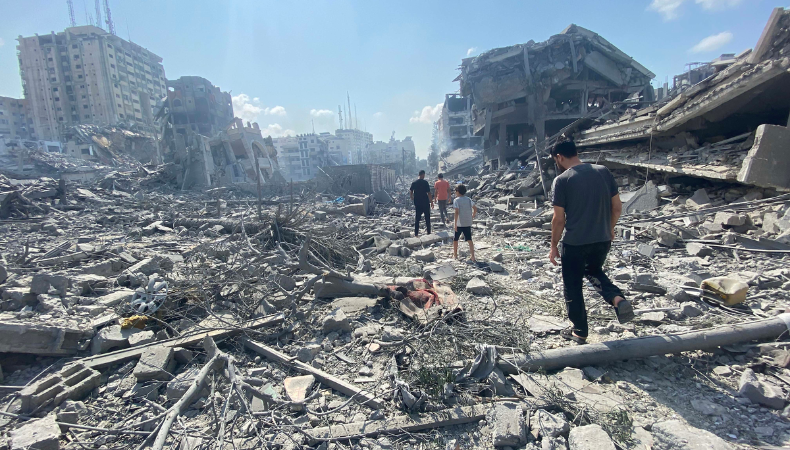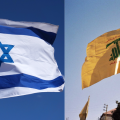Israel’s Airstrikes on Southern Beirut: International Reactions and Aftermath

Targeting a top Hezbollah leader, Israel recently carried a sequence of airstrikes in southern Beirut. Reportedly in reaction to a cross-border rocket barrage that sadly claimed the lives of twelve children and teenagers in the Israeli-occupied Golan Heights, this military operation The strikes have heightened the continuous fire exchanges between Israeli forces and Hezbollah, a militant group with a stronghold in the targeted area, even further.
Worldwide Responsibilities
America
To stop more escalation of the crisis, the United States has urged moderation from both sides. Emphasizing the need of a diplomatic resolution to lower the tensions and prevent a more general regional conflict, Secretary of State Antony Blinken Working towards a de-escalation of tensions, the United States is actively participating in diplomatic negotiations to arbitrate between Israel and Lebanon.
UN
Declaring the violence unacceptable, UN Secretary-General António Guterres has urged an instantaneous truce. Guters underlined the need of following international humanitarian law and safeguarding of people. The United Nations is advocating an emergency session to go over the crisis and is thinking about sending more peacekeepers to keep an eye on a possible truce and guarantee civilian safety.
EU European Union
Josep Borrell, head of European Union foreign policy, has voiced great worry over the rising bloodshed. Emphasizing the EU’s backing of peace initiatives in the area, he has urged both sides to get back to negotiations. The EU is also considering punishing individuals aggravating the crisis and boosting humanitarian relief to Lebanon to support displaced people.
Lebanon
The Israeli strikes have been denounced by Lebanese officials as an infringement of their sovereignty. They have cautioned of possible Hezbollah reprisal strikes, which might aggravate the matter more. The Lebanese administration is getting ready for probable more escalations and is working with foreign agencies to guarantee relief and support for impacted communities.
Aftermath
Death and Damage
Roads and residential buildings in southern Beirut have been seriously damaged by the latest bombings. The losses comprise civilians as well as Hezbollah combatants, which fuels more regional conflict. The devastation has aggravated the humanitarian crisis by uprooting many families and raising demand for immediate relief.
Humanitarian Influence
The airstrikes have worsened the humanitarian situation since many displaced families need immediate help. To give individuals impacted by the violence food, medical supplies, and shelter—essential services—aid organizations are organizing. The current catastrophe emphasizes how urgently world help and coordinated relief operations are needed.
Programs and Reactions
American United States
With special envoys sent to enable communication between Israel and Lebanon, the United States is aggressively seeking diplomatic avenues to help to calm the crisis. De-escalating the matter and stopping more violence by means of mediation and diplomacy takes front stage here.
United States Nations
In order to handle the problem and investigate possible peacekeeping actions, the UN is called an emergency session. Talks for the deployment of extra UN peacekeepers to the area to supervise a ceasefire and protect people are under progress.
European Union
The EU is stepping up its humanitarian relief activities while contemplating sanctions against organizations fueling the escalation of the violence. This entails supporting displaced people and lending financial aid to enable Lebanon to handle the humanitarian issue.
Local responses
Lebanon
The Lebanese administration is trying to get the afflicted areas international help and relief. Additionally in progress are initiatives to fortify national defenses and get ready for possible more escalation. Working with foreign partners, Lebanon seeks to meet long-term as well as acute requirements.
Hezbollah
Rising questions of a possible full-scale conflict, Hezbollah has promised to respond against the Israeli strikes. The organization is looking to regional friends for help, which would aggravate the already unstable circumstances and hamper peace initiatives.
Ongoing Projects
Talks on Peace
Calls for thorough peace negotiations with all of the region’s stakeholders are growing again. These talks seek a long-term solution to the continuous bloodshed and try to handle the fundamental problems of the conflict.
Keep On Reading
Reconstruction Activities
Plans are under development for the southern Beirut rehabilitation of the airstrike damage. Emphasizing on reconstructing infrastructure and housing to assist the impacted people, international donors and organizations are being contacted to help these initiatives.
The latest escalation between Israel and Hezbollah emphasizes the multifarious and complicated character of the conflict. Significant worldwide and regional reactions are being taken to stop more bloodshed and attend to the humanitarian needs of the impacted people. The situation is still changing, hence constant diplomatic, humanitarian, and reconstruction projects will be very important in determining the way the region gets towards stability and peace.






